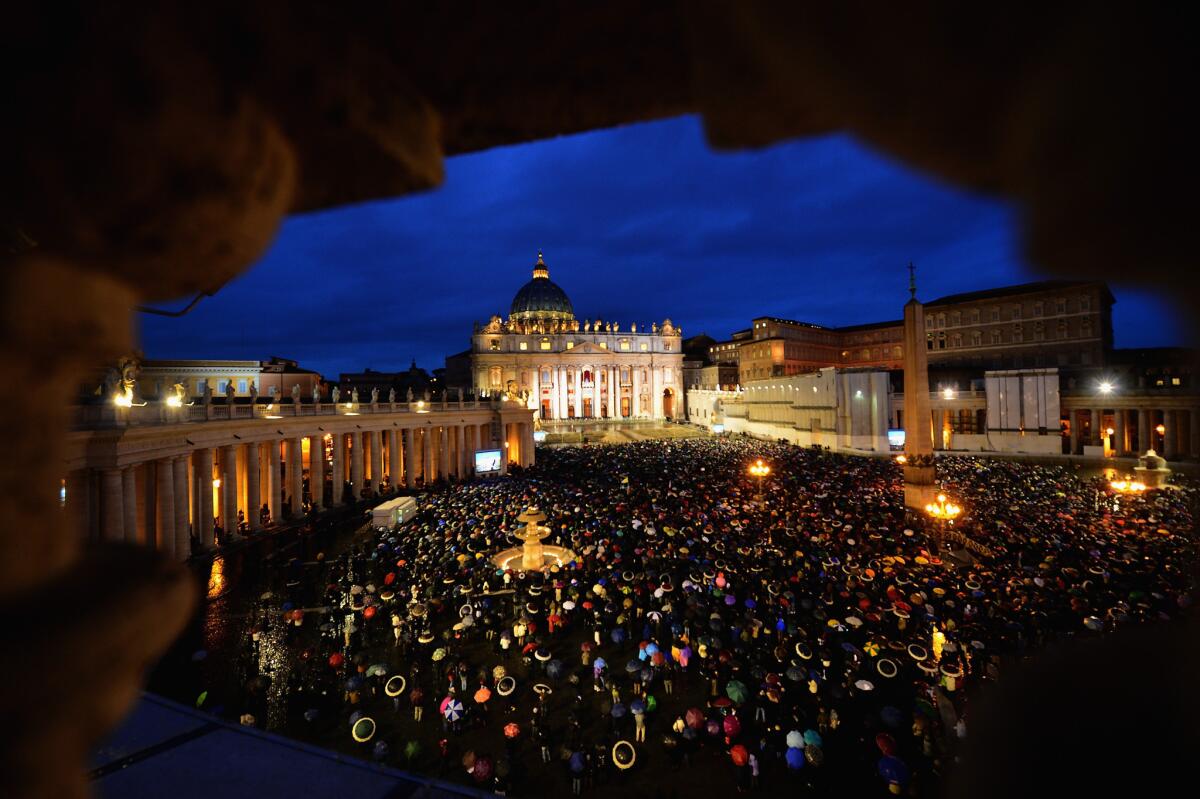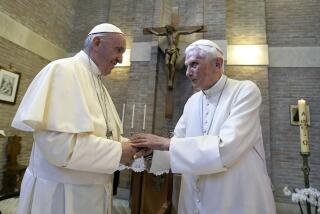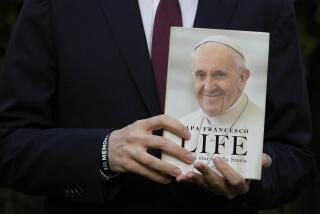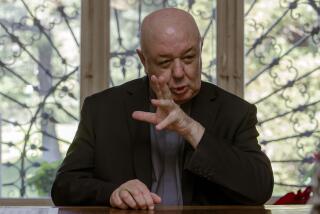Pope Francis: First New World pontiff faces old challenges

VATICAN CITY — In electing Jorge Mario Bergoglio of Argentina as pope, the leaders of the Roman Catholic Church recognized a shift in the church’s center of gravity while maintaining its conservative theology.
The new Pope Francis is the first ever from the Americas and the first from outside Europe in more than a millennium. The 266th pontiff in the church’s history immediately confronts daunting challenges. His flock is growing rapidly in some parts of the globe but is disenchanted and shrinking elsewhere. The Vatican bureaucracy is widely thought to need sweeping reform and the church is still struggling with the legacy of its sex abuse scandal.
His election represented a gentle earthquake for an institution steeped in tradition: a major departure geographically, yet a continuation theologically with his conservative predecessors, the late John Paul II and Benedict XVI, whose surprise resignation last month threw the church into uncertainty.
PHOTOS: Election of a new pope
The cardinals who elected Bergoglio, 76, after just 24 hours of voting chose a man known for his humbleness. The son of Italian immigrants – a reassurance for those worried that the church might abandon its European roots completely – he has served since 1998 as archbishop of Buenos Aires, where he cultivated a reputation for competent administration, a willingness to speak out on controversial national issues and an austere lifestyle belying his prestigious position.
His first act was to pick a papal name that analysts say reflects the intended focus of his reign: an emphasis on the humility and concern for the poor and marginalized exemplified by St. Francis of Assisi. Francis was also the name of a prominent 16th century Jesuit, the highly intellectual order to which Bergoglio himself belongs, who preached the gospel in Asia.
The new pope is also seen as an outsider who may be able to usher in the internal reform and cleanup that critics say the Vatican desperately needs after years of factionalism and scandal. But some questioned whether his age and personality would make him a transitional figure.
Bergoglio’s self-effacing manner seemed evident from the moment of his unveiling, when he stepped from behind red velvet curtains onto the central balcony of imposing St. Peter’s Basilica about 8 p.m. He waved with one hand to the crowd of tens of thousands below in St. Peter’s Square, looking almost embarrassed as a small smile played on his bespectacled face.
“You know that the duty of the conclave was to give Rome a bishop,” he told the crowd, referring to the pontiff’s traditional position as bishop of Rome. “It seems that my brother cardinals picked him from almost the ends of the Earth. But here we are! I thank you for the warm welcome.”
His voice quavered slightly, perhaps from the sense of moment, perhaps from age and perhaps from having lost a lung to a respiratory illness when he was in his 20s.
He prayed for Benedict, recited the Lord’s Prayer and exhorted his listeners to foster love, trust and unity.
Cheers and jubilant shouts of “Viva il Papa!” rose from the crowd. Many had waited for hours in the cold and rain to watch for the white smoke billowing from the Sistine Chapel, the signal of a conclusive vote inside, and to see who would appear on the balcony following the tradition Latin announcement of “Habemus papam” – “We have a pope.”
“To have a guide again after this strange period is wonderful,” said Salvatore Califano, 42, an Italian navy official. “From his speech he felt like a normal person, and that really touched me.”
MORE:
World leaders react to Pope Francis
What’s in a pope’s name? Why choose Francis?
Cardinal Bergoglio of Argentine becomes Pope Francis
More to Read
Start your day right
Sign up for Essential California for news, features and recommendations from the L.A. Times and beyond in your inbox six days a week.
You may occasionally receive promotional content from the Los Angeles Times.







